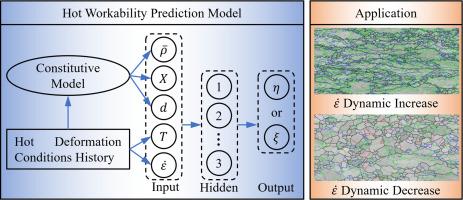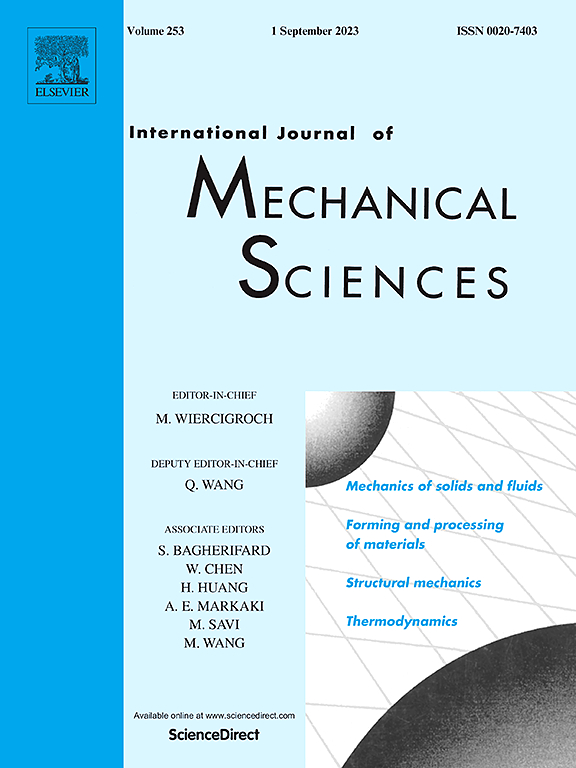New hot workability prediction method under non-constant deformation conditions
IF 7.1
1区 工程技术
Q1 ENGINEERING, MECHANICAL
International Journal of Mechanical Sciences
Pub Date : 2024-10-13
DOI:10.1016/j.ijmecsci.2024.109778
引用次数: 0
Abstract
The deformation conditions of metallic materials constantly change during forming and manufacturing technology. The thermomechanical processing theory cannot be applied to non-constant deformation conditions. The hot workability is a manifestation of the deformation conditions that affect the microstructure. This paper proposes a new prediction method based on artificial intelligence, considering the combined effect of microstructure state and deformation conditions. The hot deformation experiments under constant and non-constant deformation conditions validate the proposed method. Dynamic variation in deformation conditions significantly affects the hot workability. The findings indicate that reasonable control of the dynamic variation in deformation conditions during thermomechanical processing is conducive to improving the hot workability, providing new ways for equipment upgrading and process parameter optimization of some thermal processing technologies.

非恒定变形条件下的新型热加工性能预测方法
金属材料的变形条件在成形和制造技术过程中不断变化。热机械加工理论无法应用于非恒定变形条件。热加工性能是变形条件影响微观结构的一种表现形式。本文提出了一种基于人工智能的新预测方法,考虑了微观结构状态和变形条件的综合影响。恒定和非恒定变形条件下的热变形实验验证了所提出的方法。变形条件的动态变化极大地影响了热加工性能。研究结果表明,合理控制热机械加工过程中变形条件的动态变化有利于提高热加工性能,为一些热加工技术的设备升级和工艺参数优化提供了新的途径。
本文章由计算机程序翻译,如有差异,请以英文原文为准。
求助全文
约1分钟内获得全文
求助全文
来源期刊

International Journal of Mechanical Sciences
工程技术-工程:机械
CiteScore
12.80
自引率
17.80%
发文量
769
审稿时长
19 days
期刊介绍:
The International Journal of Mechanical Sciences (IJMS) serves as a global platform for the publication and dissemination of original research that contributes to a deeper scientific understanding of the fundamental disciplines within mechanical, civil, and material engineering.
The primary focus of IJMS is to showcase innovative and ground-breaking work that utilizes analytical and computational modeling techniques, such as Finite Element Method (FEM), Boundary Element Method (BEM), and mesh-free methods, among others. These modeling methods are applied to diverse fields including rigid-body mechanics (e.g., dynamics, vibration, stability), structural mechanics, metal forming, advanced materials (e.g., metals, composites, cellular, smart) behavior and applications, impact mechanics, strain localization, and other nonlinear effects (e.g., large deflections, plasticity, fracture).
Additionally, IJMS covers the realms of fluid mechanics (both external and internal flows), tribology, thermodynamics, and materials processing. These subjects collectively form the core of the journal's content.
In summary, IJMS provides a prestigious platform for researchers to present their original contributions, shedding light on analytical and computational modeling methods in various areas of mechanical engineering, as well as exploring the behavior and application of advanced materials, fluid mechanics, thermodynamics, and materials processing.
 求助内容:
求助内容: 应助结果提醒方式:
应助结果提醒方式:


